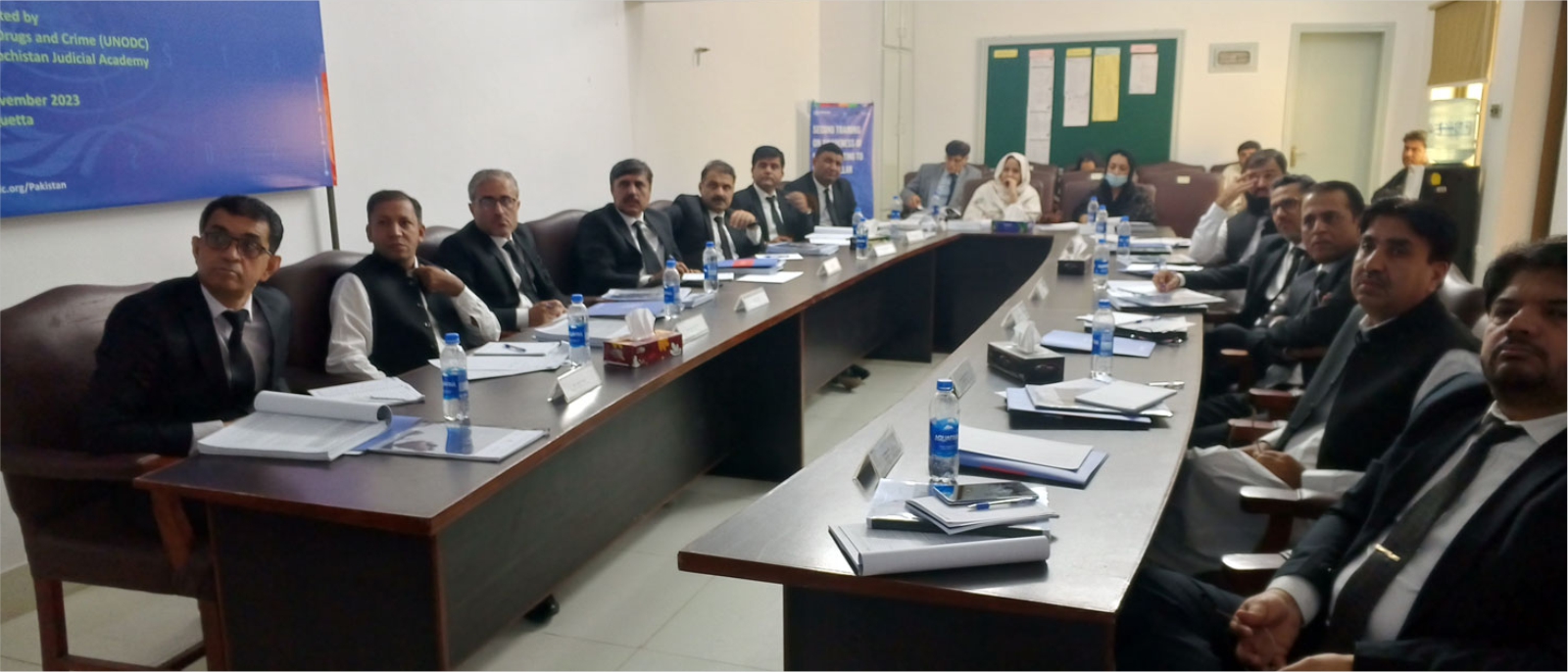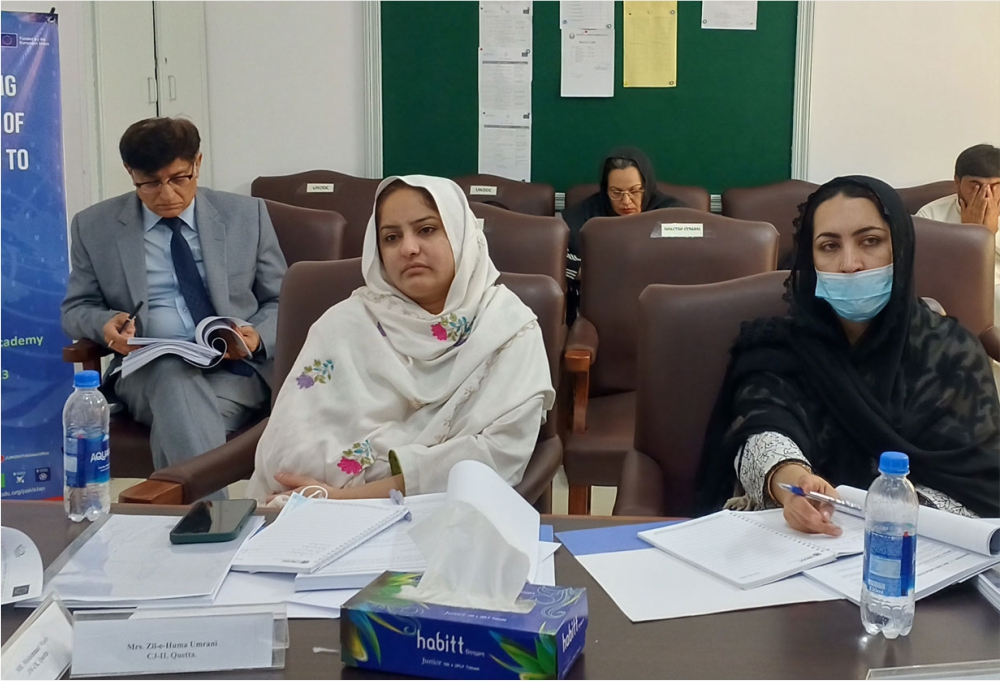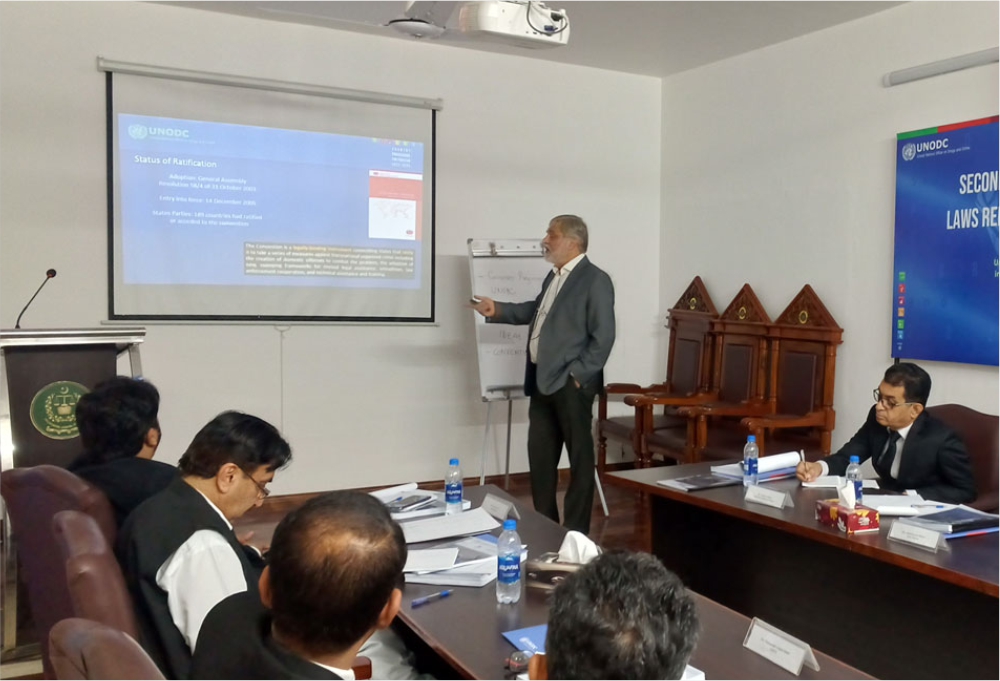
9 November 2023, Quetta - In a significant stride towards fostering justice and transparency in Balochistan, the successful conclusion of two streams of a three-day training program on awareness of laws relating to white collar crimes, funded by the European Union's 'Deliver Justice Project and conducted by the UN Office on Drugs and Crime (UNODC) at the Balochistan Judicial Academy (BJA) in Quetta, promises to achieve a lasting impact in Balochistan. The training, conducted in two spells from 24-25 October and 6-8 November, will play a pivotal role in enhancing awareness and knowledge on tackling white-collar crimes to strengthen the rule of law in the region.
UNODC is committed to fostering justice and the rule of law in Balochistan. White-collar crimes, which encompass a wide range of non-violent, financially motivated offenses, are a global challenge. In a region as diverse and complex as Balochistan, it becomes even more critical to equip judicial authorities with the knowledge and skills to tackle these issues effectively.
The three-day training program, which completed on November 8, 2023 brought together a cross-section of 30 district and session judges, along with judicial magistrates including 3 females who are now sufficiently equipped to address complex issues related to white-collar crimes, making it a significant milestone in the pursuit of a just and transparent society in Balochistan.


Participants had the opportunity to delve deep into the international legal instruments under the United Nations Convention Against Corruption (UNCAC). This provided them with a comprehensive understanding of the legal framework that governs sophisticated white collar crimes on an international scale. In addition, understanding UNCAC will be a crucial asset for judges and magistrates, as it allows them to address transnational issues related to corruption and white-collar crimes effectively.
This training program not only enhanced the knowledge of the participants but also fostered a sense of ownership among the legal fraternity of district and session judges. In addition, the dedication and interest demonstrated by the participants made this initiative a resounding success.
It provided a platform to share experiences, best practices, and strategies for tackling complex cases of white-collar crimes. The collaborative environment encouraged dialogue and cooperation, which are vital in addressing these challenging issues.
The EU's support signifies its long-standing commitment to fostering a just and transparent society in Balochistan. The training is geared towards making a contribution to the SDG16 by encouraging peaceful and inclusive societies, providing access to justice for all through building effective, accountable and inclusive institutions.
The impact of the training will be felt in courtrooms across the region as judges and magistrates apply their newfound understanding of international legal instruments and anti-corruption strategies, bringing Balochistan one step closer to a society where the rule of law prevails and justice is served to the citizens.